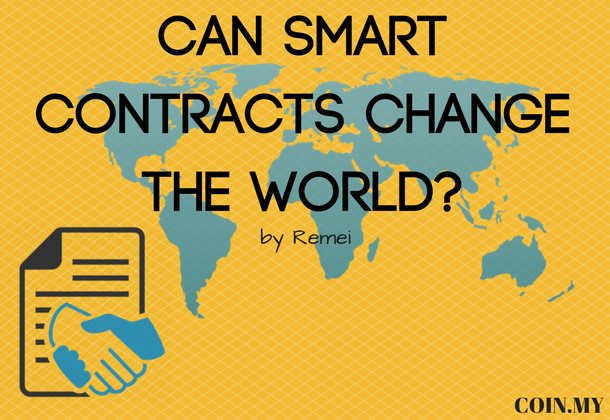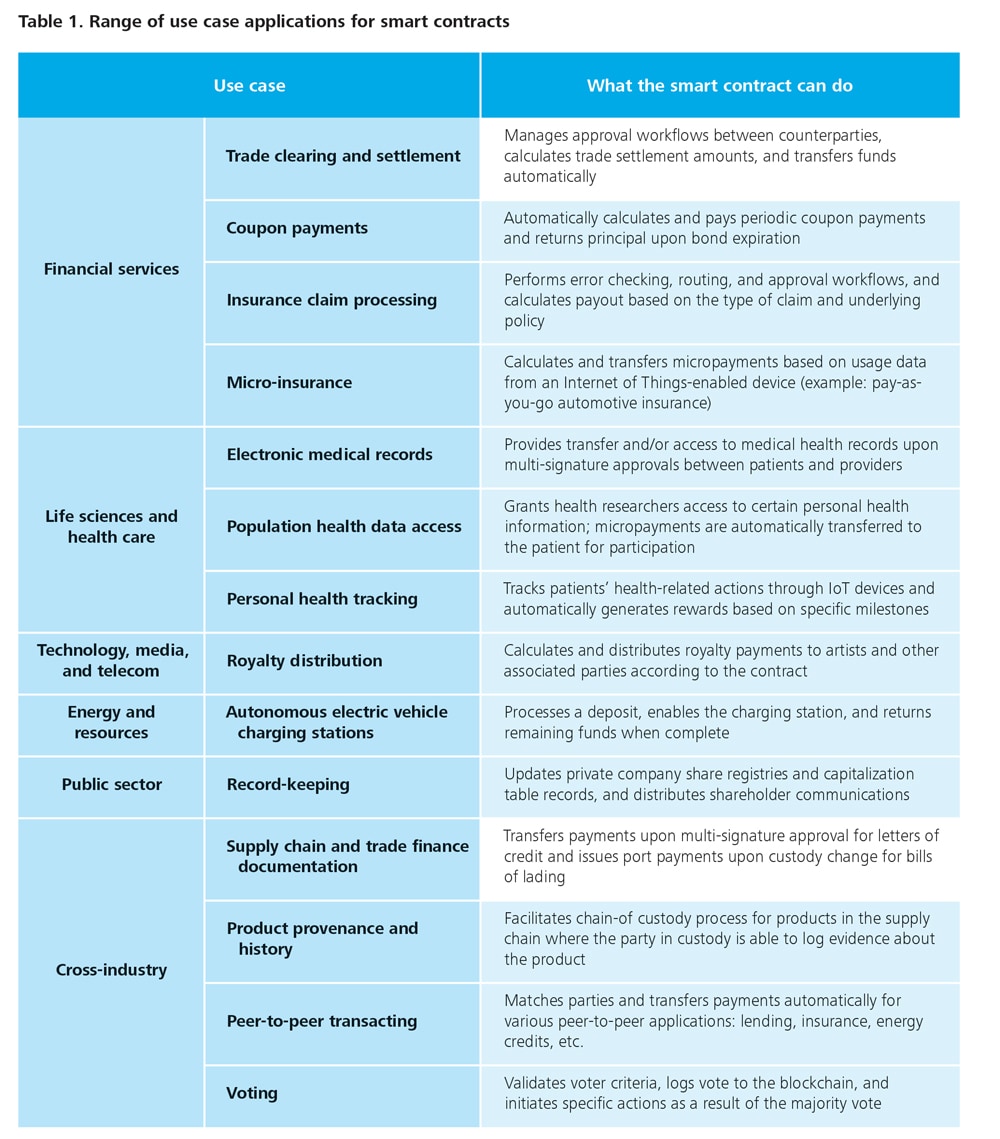
Can Smart Contracts Change the World?

We’ve touched very briefly on smart contracts when we introduced Ethereum. In this post, we’ll expand on that. To start with, smart contracts is a term used to describe an automated computer program that is capable of facilitating, executing and enforcing an agreement without human intervention. Smart contracts can help you exchange money, properties and anything of value without any or minimal conflicts.
Traditional Contracts
So what do we know about traditional contracts?
1. You need a legal representative
For one, you basically need a legal representative to write a contract between you and another party. Most of the contracts are written in legal language that is difficult to understand and parse through. Moreover, you need the legal representative to act as a witness and enforcer for your contract.
2. It’s a difficult process
Sometimes, the process can be time-consuming, as well as ambiguous. You may very well come out from the negotiations with no knowledge of what you’re agreeing to. Most of the time, people overlook the terms and conditions and just put their signature on the contract (which is legally binding, by the way!).
3. The legal consequences is not a walk in the park either
If the contract falls under dispute, both parties can experience negative effects. The process of resolving issues with contracts involve long waiting period and a lot of money. Often, both parties find that the resources wasted not worth the dispute in the first place.
Smart Contracts
So how can smart contracts improve traditional contracts?
1. Simple computer programming to replace enforcers
Behind the scenes, computer programmers help create smart contracts using contract development tools and programming code languages such as C++, Python, Go and Java. The code will define the rules and consequences in the same way that a traditional legal document could. It can include obligations, conditions, benefits and penalties in different circumstances. This code can then be self-executed using the same principle as verification of bitcoin transactions.
2. Easy to understand
Because all the complicated process happens behind the scenes, the surface of a smart contracts remain simple and relatively easy to understand. Think of it like an IF function in Excel, where a cell returns one value if a condition is true and another value if a condition is false.
3. Transparent and accurate
Smart contracts are less prone to manual errors and the process of execution virtually eliminates manipulation and noncompliance. Similar to bitcoin transactions, computer nodes in the network come to a consensus about the code execution. The network will record the execution of the contract and update the ledger, and monitor the compliance of the contract.
Smart Contracts Use Cases
A wide range of areas in various industries can benefit from using smart contracts and Deloitte have identified several areas that can use smart contract in the picture below.

Smart contracts are still new that research into the technology is still ongoing. Several issues such as coding error or external circumstances can affect execution of smart contracts. Experts are trying their best to resolve these issues as fast as they can identify them. But just like how bitcoin has changed the process of transactions, there is no doubt that smart contracts will change the way we execute contracts.
So here’s to the future of smart contracts.


![Binance [Zinah Mill] – Inside Post Ads](https://cdn.coin.my/wp-content/uploads/2018/02/binance-S.jpg)
